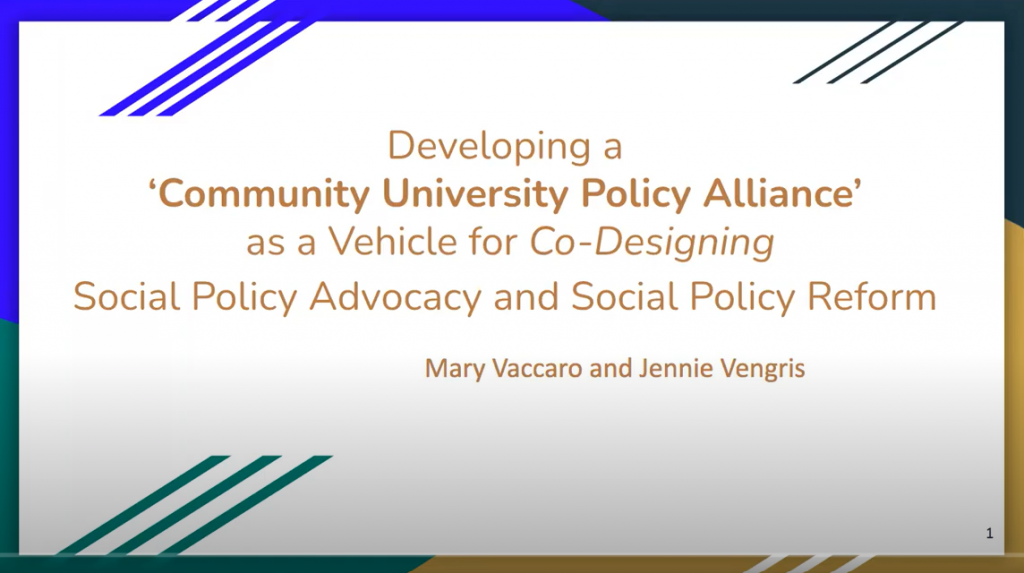
Join SEED grant winners and trainees to get insight into the challenges and lessons learned in co-design research. Their research spans across transportation, health, and employment sectors. Engage in breakout rooms to develop your network and share insights, challenges, and recommendations in co-design.
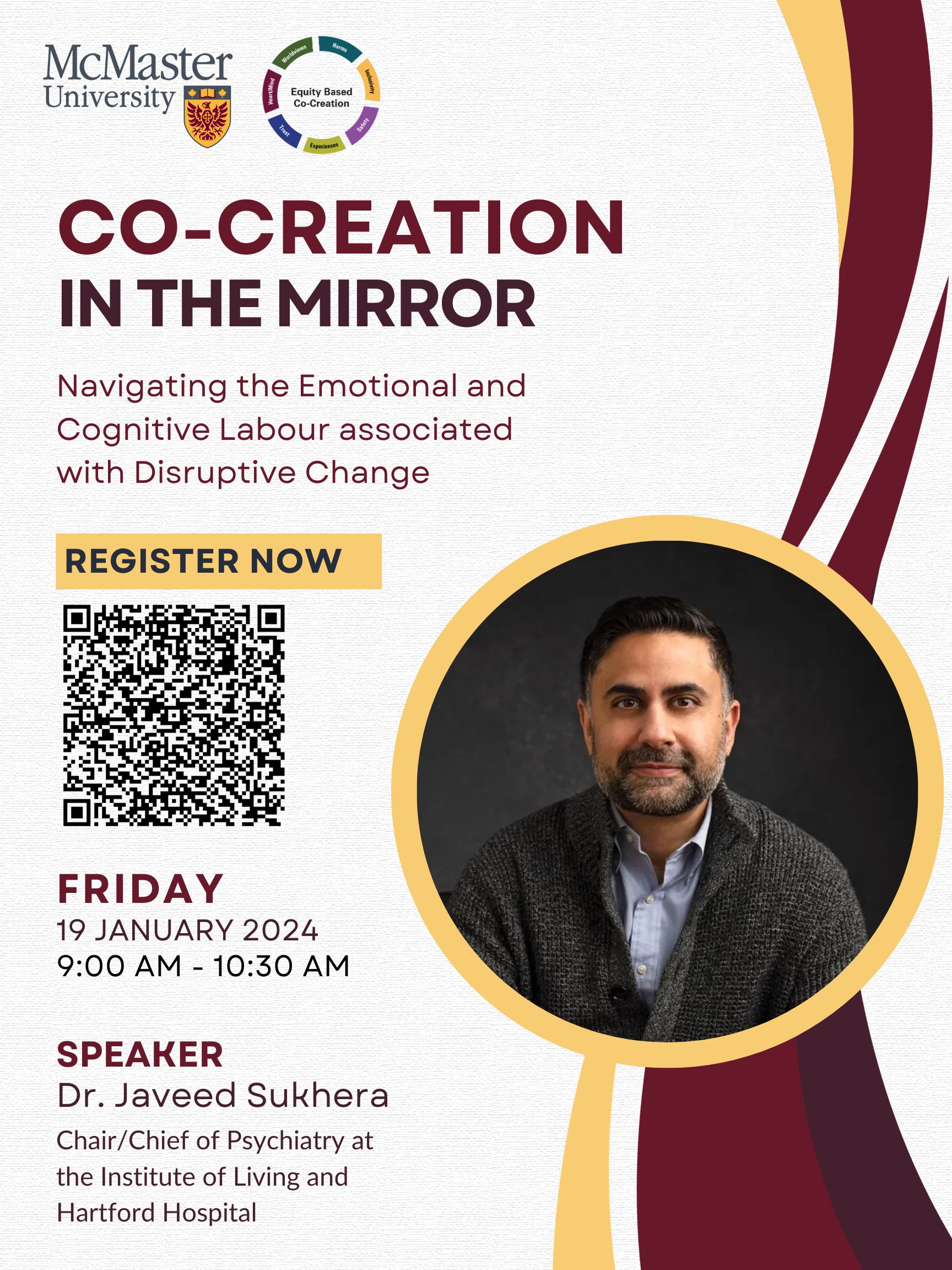
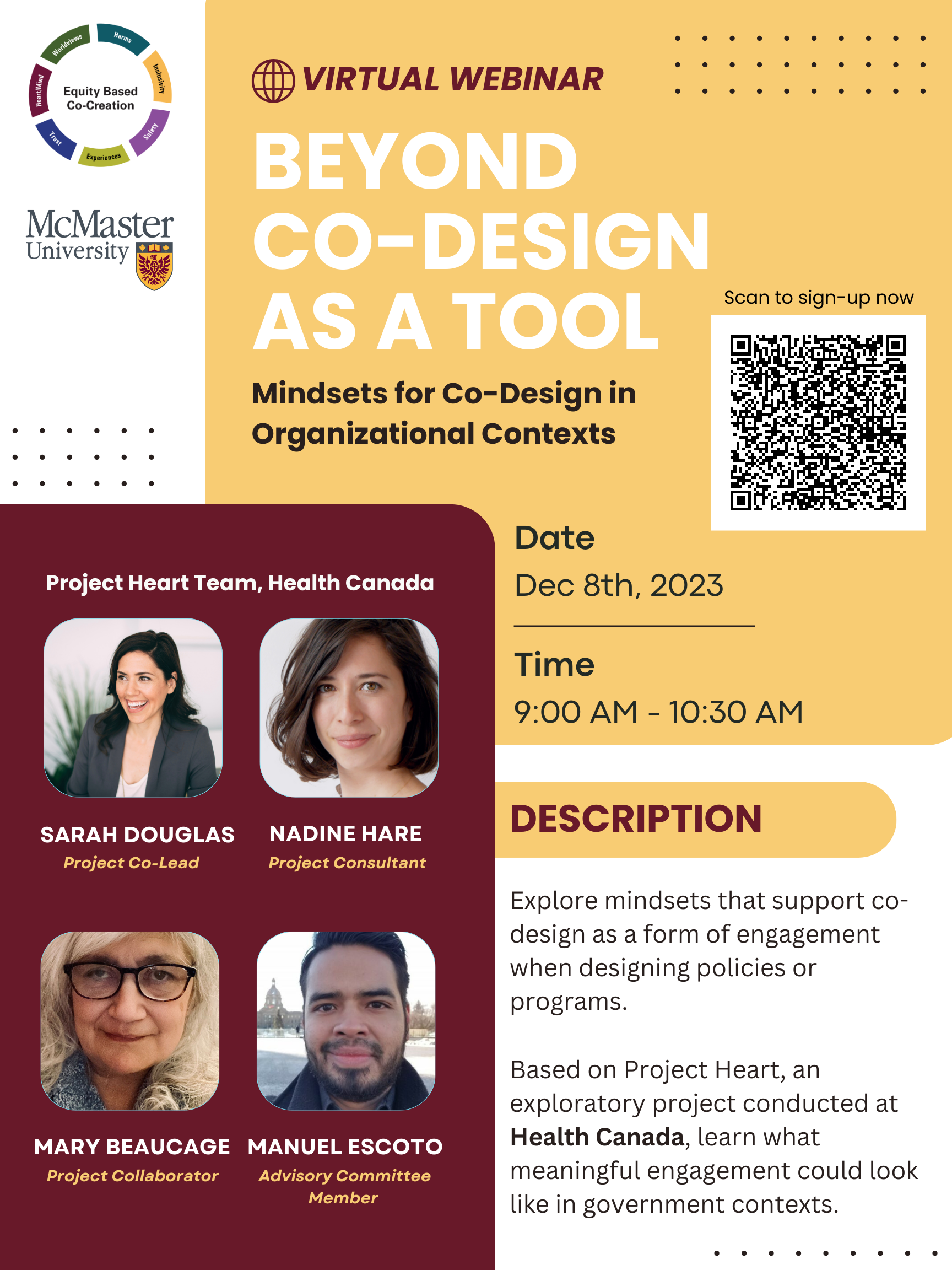
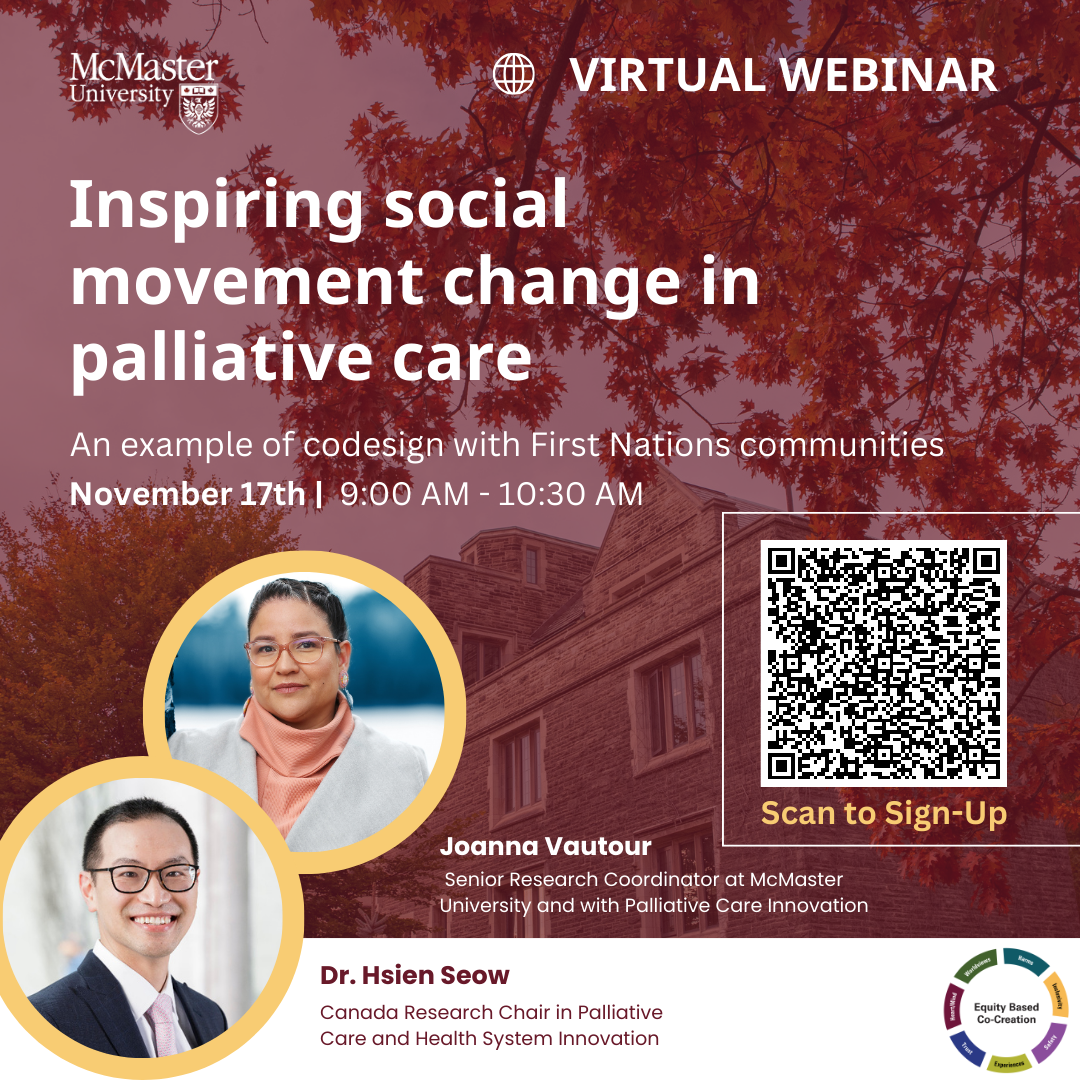

Participants explored the illustrations of equity-based co-creation (EqCC) that were prototyped at the CoPro2022 Forum. The main EqCC tenants arising from the prototype analysis were shared and discussed. We explored visual prototypes of EqCC, and thematic analysis of the essential elements of this approach.

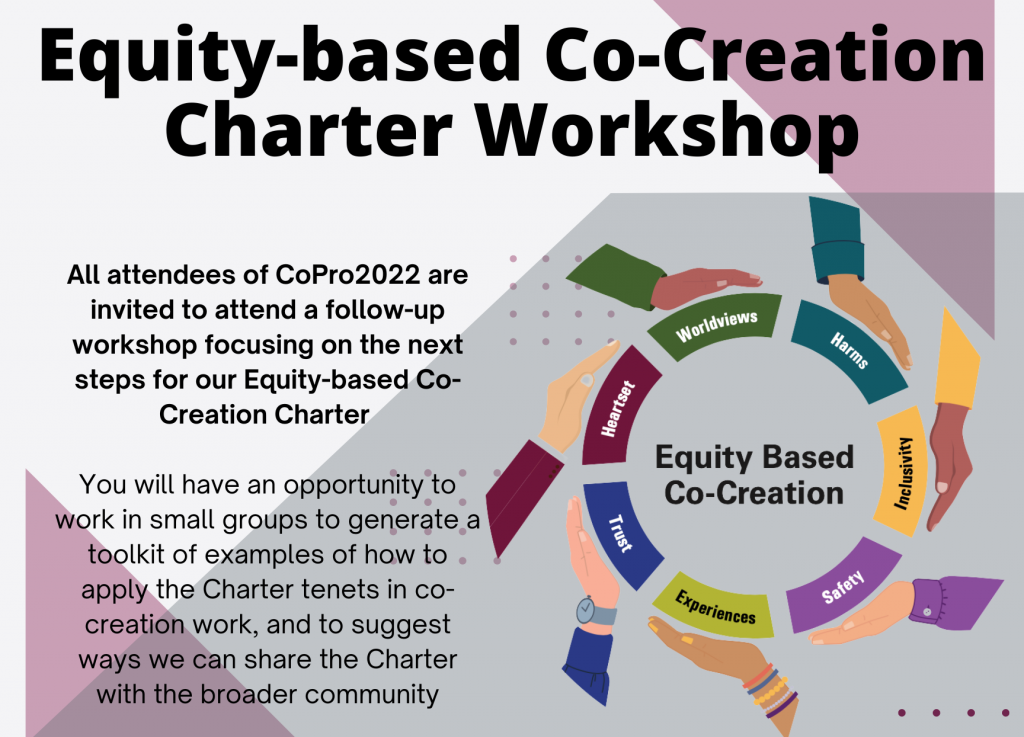

Building Community Among Emerging Leaders in Equity-based Co-creationMarch 2023Zoom
Building Community Among Emerging Leaders in Equity-based Co-creation is a free workshop that is an opportunity for inspiration, networking, and dialogue with emerging leaders who are practicing equity-based co-creation. Dr. Wyndham-West, Graduate Program Director of the Design for Health & Inclusive Design programs at OCAD University will facilitate the event which will bring together students from OCADU’s Inclusive Design and Design for Health programs and students from McMaster University who are interested or engaged in equity-based co-creation initiatives. This event will be an opportunity for students to showcase their design projects as a springboard for discussion about current and future directions for co-design scholarship and practice.
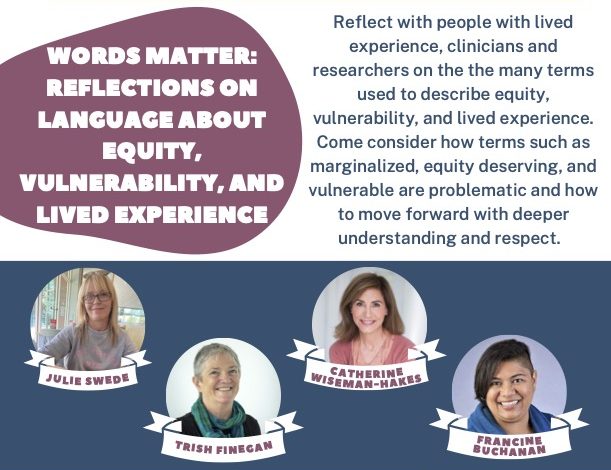
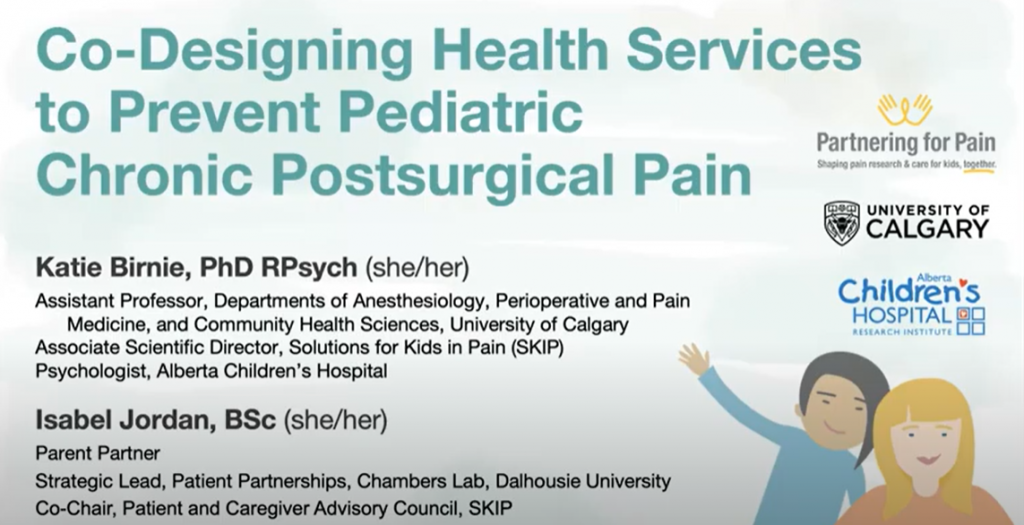
Preventing chronic is the #1 priority for youth with chronic pain, their families, and healthcare professionals in Canada. Approximately 20% of youth who undergo major surgery will develop chronic pain. This project uses design thinking methods and engages with youth, parents, healthcare professionals, and healthcare administrators to co-design a new health service to prevent the development of chronic pain in youth after surgery.
Three phases of the project include: (1) A survey with health institutions across the country about current pediatric surgical pain management practices and readiness for health systems change (2) Interviews with youth with chronic postsurgical pain, parents/caregivers, and healthcare professionals about their experience (3) Two virtual design thinking workshops to develop patient-oriented design principles and a service blueprint for the new health service to prevent chronic pain after surgery for youth.
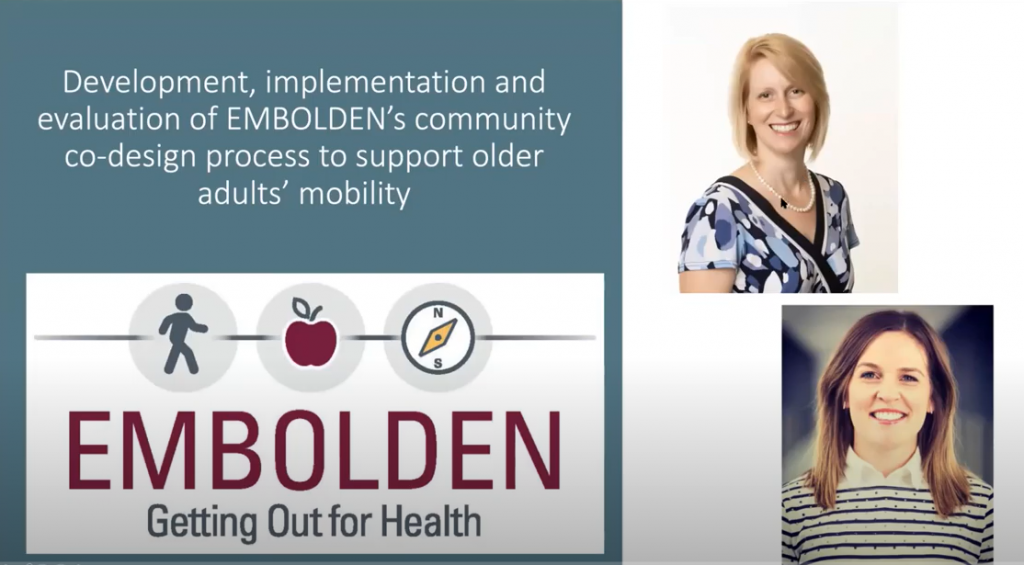
Participants will learn about a community co-design process between researchers, health and social service providers and older adults to develop a health intervention including physical activity, socialization, healthy eating and system navigation support. Challenges and opportunities associated with co-designing during the COVID-19 pandemic will be outlined. Older adult research partners’ contributions to the design of the co-design evaluation study will be highlighted.
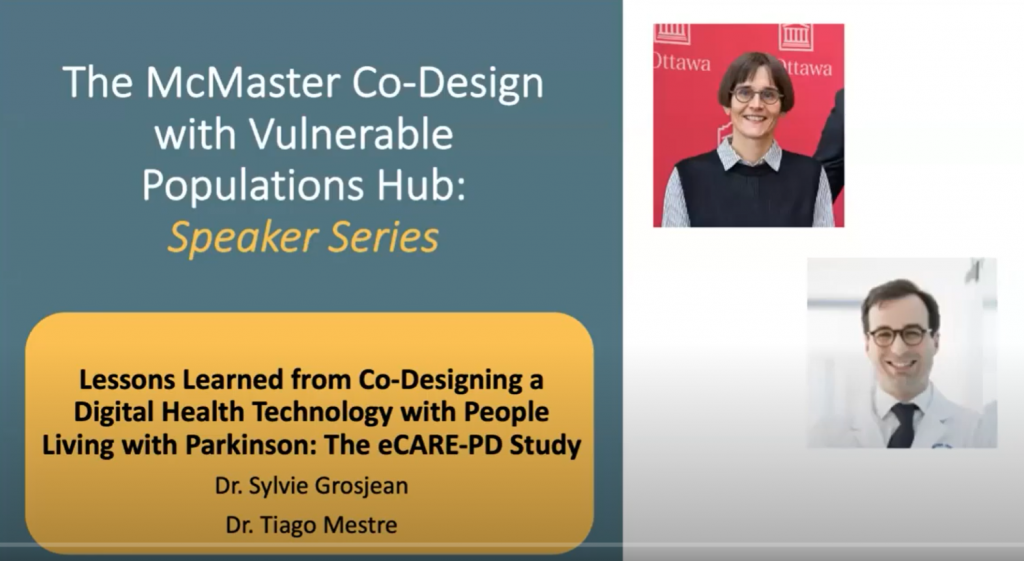
April 2021
Drs. Sylvie Grosjean and Tiago Mestre will present their co-design approach within a case study involving people living with Parkinson, caregivers and health care professionals in the design of a technology called eCARE-PD. They will highlight key phases in the digital development process, demonstrating how co-design creates conditions for the social acceptability of the technology to be negotiated and progressively defined. They will share critical reflections on the value and function of stakeholder engagement in the process, and conclude with key “lessons learned”.

How has the McMaster Co-Design Hub worked to advance co-design with structurally vulnerable communities? Where do we need to go from here? This speaker series event discusses the work of the Co-Design Hub over the past year and our emerging Theory of Change, as well as explore opportunities to engage, network, and share insights with our growing co-design community.
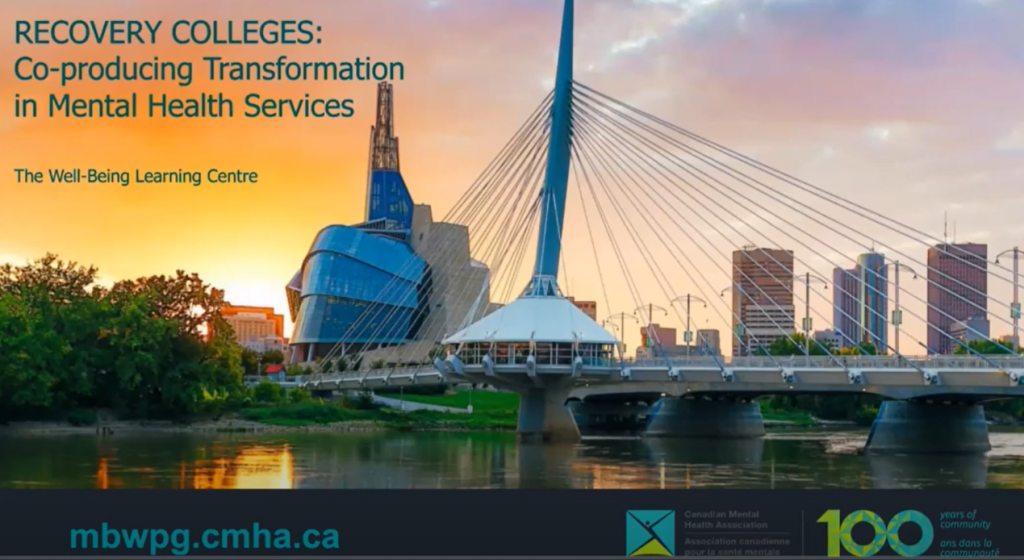
Sheryl Giesbrecht, Manager of the CMHA Well-being Learning Centre in Manitoba, will be our guest facilitator to share her experiences in co-producing a Recovery College in Winnipeg, Manitoba. Coproduction takes co-design to the next level by making it an ongoing way of doing business.
Recovery Colleges originated in the United Kingdom as an innovative educational approach in which
service users and service providers co-design and codeliver courses, and co-learn together to foster mental health recovery. Recovery Colleges empower
through education and build partnerships in the journey of recovery, thereby challenging the current
paradigm of mental health treatment in Canada.
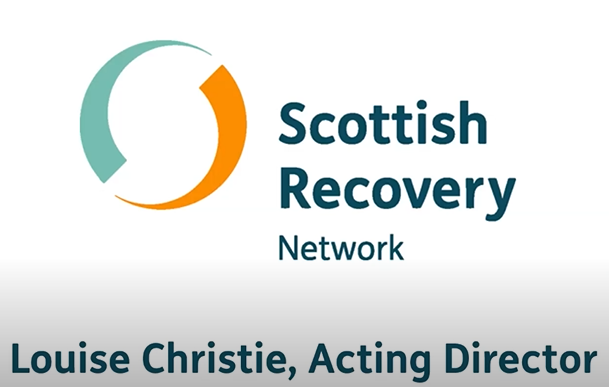
Our guest speaker joined us from Scotland: Louise Christie is the acting Director of the Scottish Recovery Network, a unique non-profit initiative that was established in 2004 to promote and support mental
health recovery in Scotland and beyond. She discussed their “Making Recovery Real” initiative which involves partnership development to support local agencies, organisations, and people with lived experience to work together to identify ways to support mental health recovery and how to put this into action.
COVID-19 brought new challenges, not only to mental health, but also to traditional forms of engagement
and co-production that were core to the work of the Recovery Network. Ms. Christie shared some of the innovations that they have put in place (eg. online conversation cafés), and the opportunities and challenges that they have faced along the way.
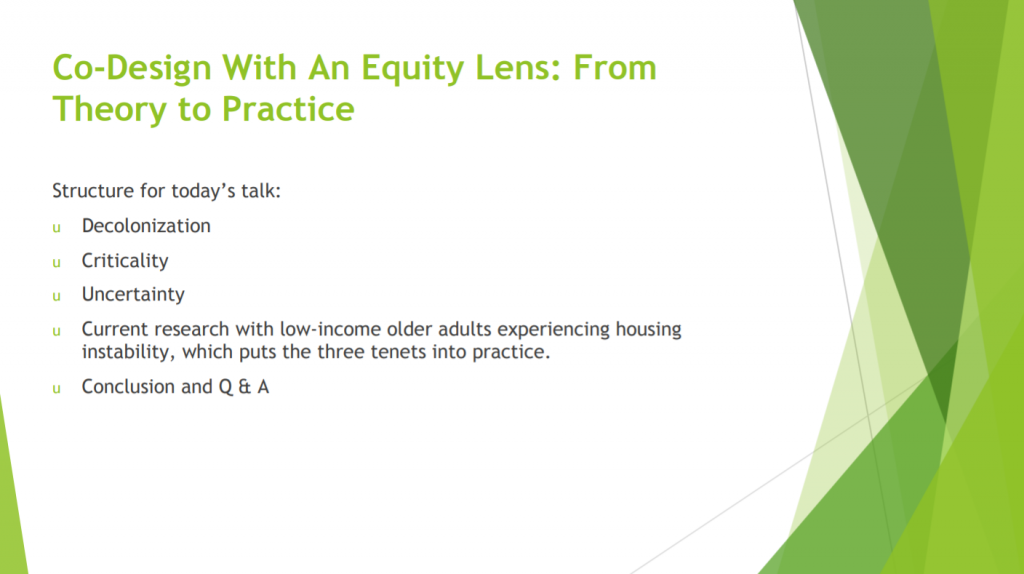
Dr Wyndham-West presented at the first Co-Design Hub Speaker Series, discussing principles of inclusive design from a health equity lens, drawing upon theory, research, and practice. Dr. Wyndham-West is an Assistant Professor in the Faculty of Design at the Ontario College of Art and Design (OCAD) University, is a critically applied medical anthropologist specializing in health equity, aging, housing, emerging technologies and public policy development.
To cite this resource, please use:
Wyndham-West, M. (2020). Co-Design with an Equity Lens: From Theory to Practice [Powerpoint slides]. Retrieved from: https://codesign.mcmaster.ca/my-resources/

